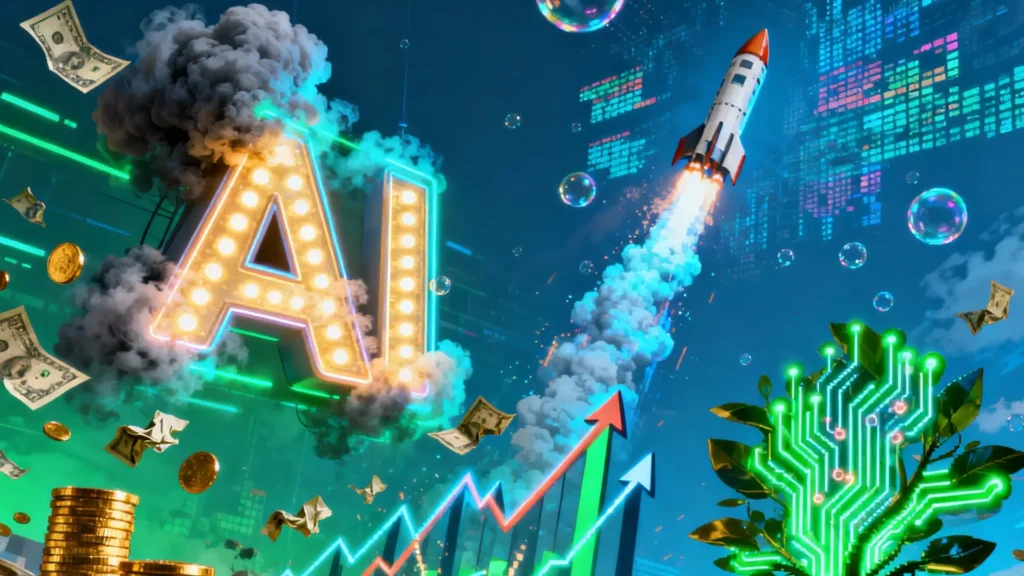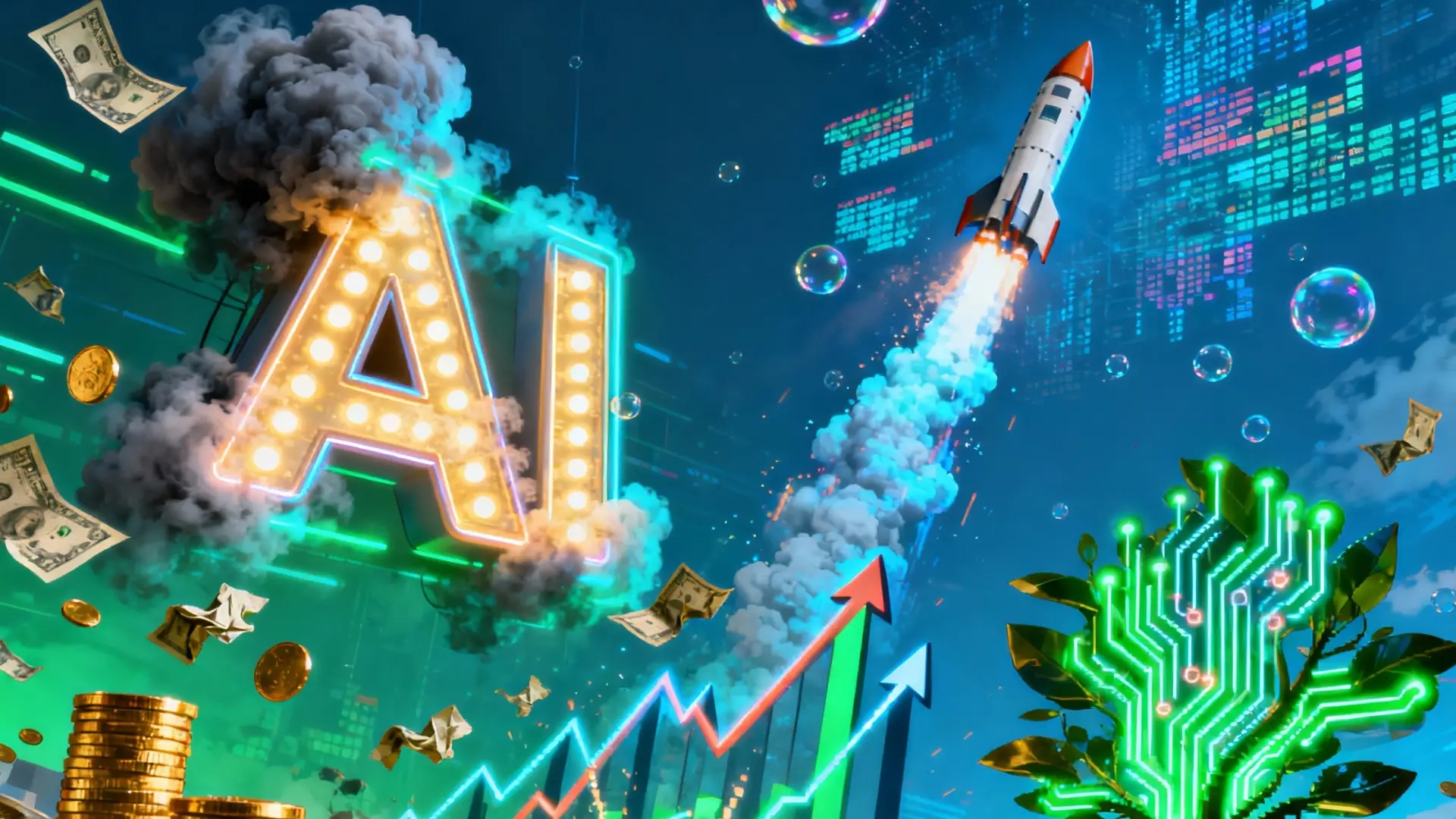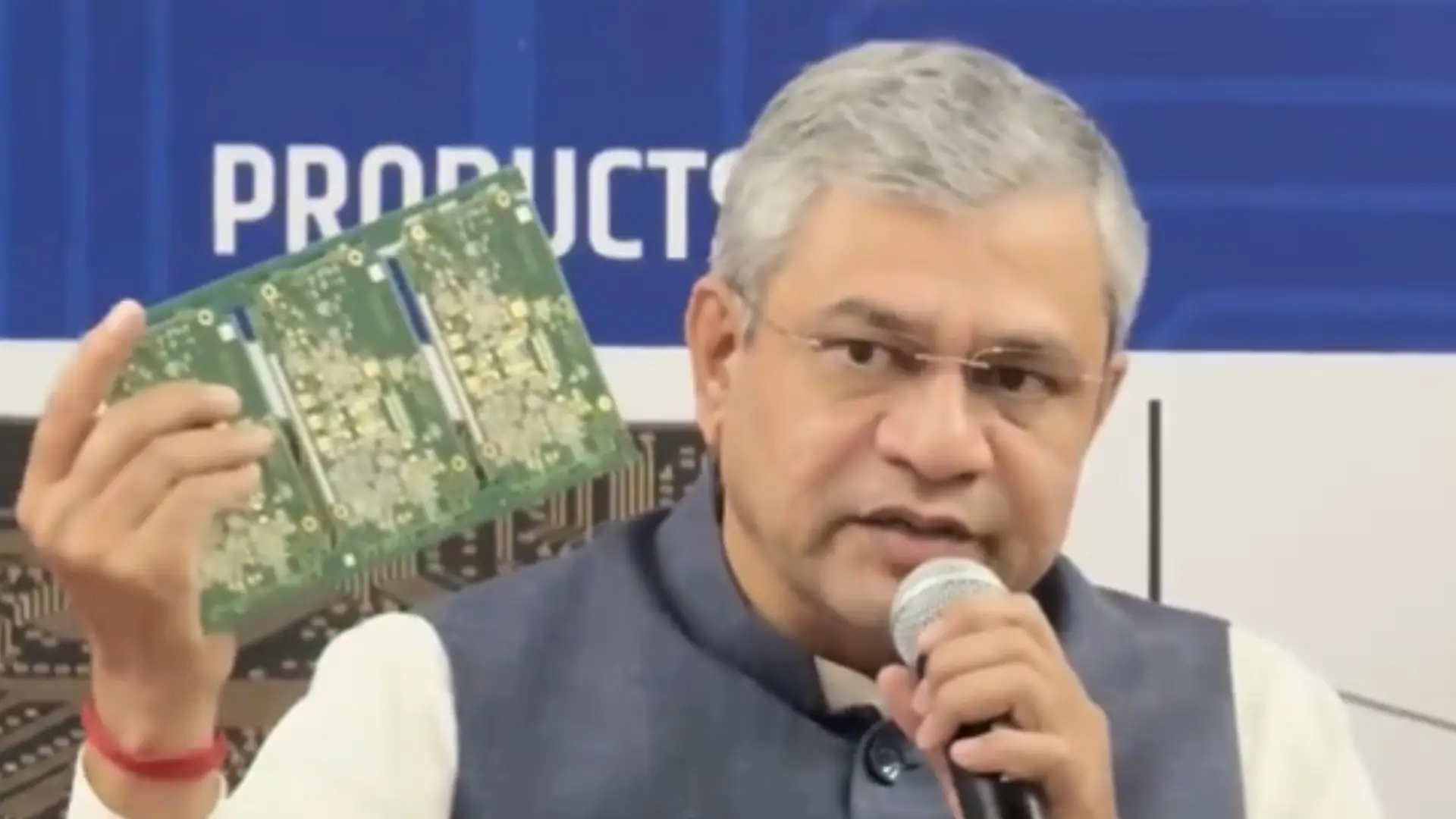Every single day, our connection and dependence on AI is rising faster than ever. On one hand, people are loudly claiming that this whole AI wave is a bubble waiting to burst. But on the other hand, we’re seeing millions, sometimes billions, being poured into AI startups at a pace we’ve never witnessed before
Every week, at least one company announces that it has raised millions… only because it labels itself an “AI company.” Some startups are raising insane amounts of capital and losing money at the same speed. And yet, if you look at the numbers, the global adoption of AI is skyrocketing. Productivity, usage, revenue contribution, and enterprise integration are all trending upward.
So why the hesitation? Why are people still sceptical about investing in AI, even when the statistics show progress?
To make this even more interesting, at a recent summit in San Francisco, when the crowd was asked, “Which AI company is most likely to fail?” The top answer was Perplexity, followed closely by OpenAI. Think about that: two of the most heavily backed AI players also received the strongest public doubt. On one side, you have people with strong opinions and loud predictions. On the other side, investors are still writing checks worth millions.
So where is this massive mismatch coming from? Before we break down the reasons, let’s understand one point clearly:
Is AI a bubble? Not completely, but partially, yes. Now let’s dive deeper into the two sides of this story.
First let’s talk about the valuations and the justification with the revenues. AI companies are being valued at 20×, 30×, or even 50× their annual revenue. Many are pre-revenue but are still valued in billions. This reminds people of past bubbles such as dot-com, crypto, and EV startups.
Now what we need to understand is that the technology that is under development requires huge initial costs and also high maintenance costs.
Funding is very essential. Infrastructure costs often rise faster than revenues, and a startup can scale users, but to scale their margins, it requires time.
Now, by looking at these trends, people are imagining it as unsustainable and that it will crash.
Yes, as I said, it is partially yes. Why? Not every company is actually developing AI or is a core AI company. Companies that were “productivity SaaS” last year suddenly became “AI-first platforms” this year just to raise funds.
But what we need to realize or understand is the adoption of AI in India. The latest survey by the Competition Commission of India (CCI) makes that very clear. According to the report, artificial intelligence is already “rapidly reshaping” India’s business landscape, driving both efficiency and innovation across industries. Interestingly, 67% of India’s AI startups are not building foundational models; they are building applications. The study also highlights how 76% of AI startups rely heavily on open-source technologies, a move driven by the need to cut down on massive compute costs and speed up product development.
A massive 88% of startups use machine learning as the core layer powering their solutions. Meanwhile, 66% have already integrated generative AI models, including LLMs, showing how quickly GenAI has entered mainstream product development. NLP usage stands at 78%, making it one of the most widely adopted AI capabilities in India, while computer vision is used by just 27%.
That’s the scale we are seeing with AI adoption in India. So, business is happening already around the AI.
Now tell me, why is the public still so doubtful? Why do people still believe “AI will fail” while industries are already running on it?
And to understand it clearly, we need to break down what people see vs. what investors see. Because each have different perspectives.
While users and the public see the uncertainty, investors are more focused on the opportunities. We generally judge the product, but understanding the whole ecosystem itself gives us a clear picture.
What we need to understand is, they are backing the models, GPUs, cloud infrastructure, and developer platforms. And investors are not aiming for a short-term return but for a revolution that it creates in the long term.
Now at the end, what we need to realize is transformation is already in process. Yes, some companies will fail, valuations will fluctuate, and hype-driven startups will disappear. But the direction is clear. Industries are already being reshaped, workflows are being rebuilt, and businesses are quietly becoming AI-powered behind the scenes.
So, the real question is which companies will survive? And that’s where the story begins.
Is the AI Boom a Bubble? Why Public Doubt and Investor Confidence Don’t Match
November 19, 2025
Subscribe to Our Newsletter
Keep in touch with our news & offers










